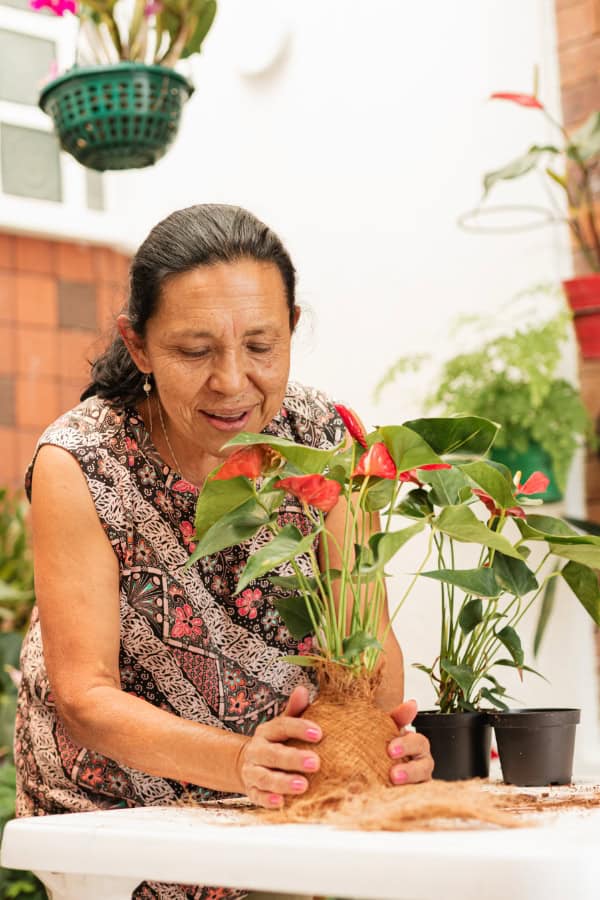Hospice Care for AIDS Patients
Care Services
Living with HIV/AIDS, especially in its advanced stages, can be overwhelming both physically and emotionally. Hospice care focuses on improving…















Living with HIV/AIDS, especially in its advanced stages, can be overwhelming both physically and emotionally. Hospice care focuses on improving quality of life, managing symptoms, and providing dignity and peace.
Hospice services for patients with HIV/AIDS include:
- Symptom Management
- Addressing chronic pain, fatigue, nausea, respiratory distress, and other debilitating symptoms.
- Administering medication and therapies to ensure physical comfort.
- Tailored care plans designed by expert physicians and nurses to match the patient’s unique needs.
- Emotional and Psychological Support
- Counseling to reduce stress, fear, and anxiety about the illness or the future.
- Assistance in addressing emotional challenges like isolation, depression, or stigma.
- Spiritual Guidance
- Chaplains and spiritual counselors provide comfort for those seeking peace and closure, regardless of their faith or beliefs.
- Holistic Wellness
- Nutrition and hydration support, advice on mobility, and alternative therapies (where available) to enhance quality of life.
What Can Hospice Do for the Family of a Patient with HIV/AIDS?
Hospice recognizes that a patient’s illness profoundly impacts their family and caregivers. That’s why our care extends beyond the patient, focusing on helping families navigate this challenging time with guidance and support.
Here’s how we assist families:
- Education and Training
- Guidance on caregiving techniques, including administering medication, proper nutrition, and managing symptoms.
- Resources on understanding the progression of HIV/AIDS and preparing for changes.
- Emotional Support
- One-on-one counseling for caregivers and family members to help process grief, anxiety, and feelings of helplessness.
- Family support groups to connect with others experiencing similar challenges.
- Planning and Coordination
- Assistance with care planning, insurance navigation, and legal matters like advance directives.
- Helping families prepare for end-of-life arrangements with sensitivity and care.
What Are the Overall Benefits of Hospice Care?
Discussing hospice care with your loved ones can feel overwhelming, but it’s an important step to ensure comfort and peace for everyone involved.
Hospice care isn’t just about medical treatment—it’s about creating an environment where patients and families feel supported, empowered, and valued.
Key Benefits Include:
- Improved Quality of Life
- Relief from pain and discomfort.
- Enhanced emotional well-being through counseling and companionship.
- Personalized Care
- A dedicated team of medical professionals and support staff focusing on the patient’s unique needs.
- Family-Centered Approach
- Families become an integral part of the care process, with guidance and support from hospice professionals.
- 24/7 Support
- Around-the-clock access to nurses, doctors, and other care team members for any urgent needs.
- Peace of Mind
- Ensuring patients and families have a plan in place, reducing stress during an uncertain time.
How Can I Approach the Hospice Discussion with My Loved One(s)?
Talking about hospice care can be difficult, but it’s also an opportunity to ensure your loved one’s wishes are respected. Approach the conversation with empathy, patience, and love.
Tips for Starting the Conversation:
- Choose the Right Time and Place
Find a quiet, private moment where you can have an uninterrupted discussion. - Focus on Their Needs
Frame hospice care as a way to honor their comfort and dignity, rather than a sign of “giving up.” - Be Honest but Gentle
Share your observations about their health and concerns, and ask how they’re feeling about their care. - Seek Guidance Together
Suggest speaking with a hospice professional or physician to address questions and ease concerns.
When is the Right Time to Ask About Hospice?
Considering hospice care early can provide more time to create meaningful moments and improve quality of life.
Hospice may be the right choice if:
- The patient experiences frequent hospitalizations or emergency room visits.
- There is significant pain, fatigue, or weight loss.
- Current treatments are no longer effective, and the focus has shifted to comfort.
Should We Wait for Our Physician to Recommend Hospice Care?
Physicians may not always bring up hospice care right away. Families and patients are encouraged to start the conversation themselves.
Reasons to reach out directly to hospice care:
- You’re noticing rapid changes in your loved one’s health.
- You want to explore options and prepare for the future.
- You want a second opinion on comfort-focused care.
Understanding HIV/AIDS and Related Conditions
What Diseases Can Be Caused by HIV/AIDS?
HIV/AIDS compromises the immune system, leaving patients vulnerable to serious conditions like:
- Opportunistic infections (e.g., pneumonia, tuberculosis).
- Certain cancers, like Kaposi’s sarcoma and lymphoma.
- Neurological disorders caused by infections in the brain.
The Three Stages of HIV
- Acute HIV Infection
- High viral load and flu-like symptoms.
- Chronic HIV Infection
- Fewer symptoms but ongoing immune system damage.
- AIDS
- The most advanced stage, marked by severe opportunistic infections and weakened immunity.
Diagnostic Criteria for Entering Hospice Care with Advanced HIV/AIDS
Hospice eligibility for HIV/AIDS patients includes:
- Rapidly declining health despite treatment.
- Weight loss exceeding 10% of body weight.
- Significant symptoms like chronic diarrhea, fevers, or fatigue.
- A prognosis of six months or less if the disease runs its natural course.